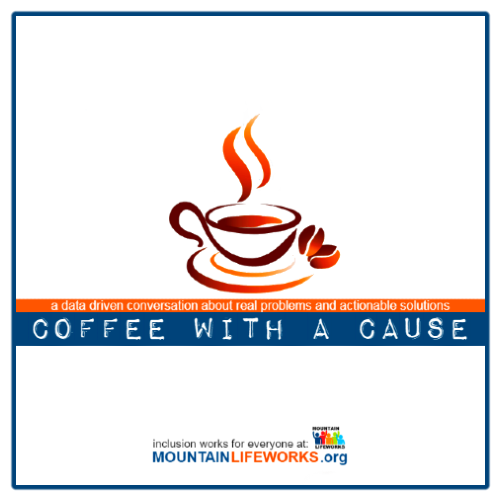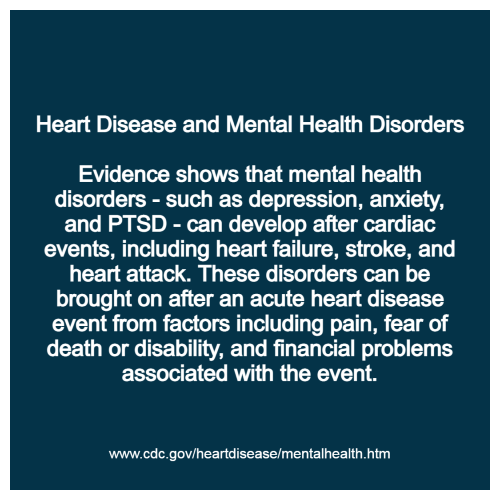
FEBRUARY 2025 heart month
Did you know CDC data shows Heart Disease is
the leading cause of death for men, women, and people of most racial
and ethnic groups. One person dies every 33 seconds from
cardiovascular disease. In 2022, 702,880 people died from heart
disease. That's the equivalent of 1 in every 5 deaths. Coronary
heart disease is the most common type of heart disease. It killed
371,506 people in 2022. About 1 in 20 adults age 20 and older have
CAD (about 5%). In 2022, about 1 out of every 5 deaths from
cardiovascular diseases (CVDs) was among adults younger than 65
years old.
In the
Heart Month | Mountain Lifeworks
Heart Disease and Mental Health | CDC

Coffee with a Cause february 2025
In Colorado people with disabilities
experience heart disease and depression at 3X the rate of those with
no disability. Depression and heart disease have overlapping
symptoms like fatigue, low energy, and difficulty sleeping.
Individuals recovering from a heart attack and cardiac events require both physical and mental health support systems. When uncertainty and anxiety become debilitating and interfere with daily life functions, then the process of rehabilitation and recovery after a heart attack or other cardiac event may need to include mental health support and treatment for depression. These include cardiac rehabilitation, social groups, and specialized evaluation and treatment by mental health and social workers.
U.S. State Profile Data | Disability and Health Data System | CDC

Coffee with a Cause february 2025
More than 356,000 people have an
out-of-hospital cardiac arrest in the
Sudden Cardiac Arrest | Heart Disease | CDC
It’s natural to
withdraw and lose social confidence after a heart attack. According
to some studies social engagement helps recovery. Studies indicate
returning to normal activity and seeing the progress of other people
recovering from a heart attack can significantly improve mood and
confidence. The need to address other physical conditions can make
cardiac rehabilitation especially useful, and it can help improve
strength and mobility for performing daily tasks. Studies found
cardiac rehabilitation decreases the chances of death in the 5 years
following a heart attack or bypass surgery by about 35%.
Cardiac Rehabilitation Can Help Heal Your Heart | CDC
Cardiac rehabilitation has many health benefits in both the short and long term, including: strengthening the heart and body after a heart attack, and relieve symptoms, such as chest pain. It helps build healthy habits such as getting more physical activity, quitting smoking, and eating a heart-healthy diet. Cardiac rehab can a person recover from a heart problem, reduce stress, address depression and prevent future heart problems. Studies found cardiac rehabilitation helps men and women, people of all ages, and people with mild, moderate, and severe heart problems.
Remember a balanced approach uses verified data to identify problems and to propose actionable solutions. Only those willing to have difficult conversations can solve difficult problems. The first step to solving any problem is accepting the data indicating a problem... not blaming the messenger or method of delivery.
So join us for Coffee with a Cause and let's keep the conversation going each month with more data and actionable real life solutions!